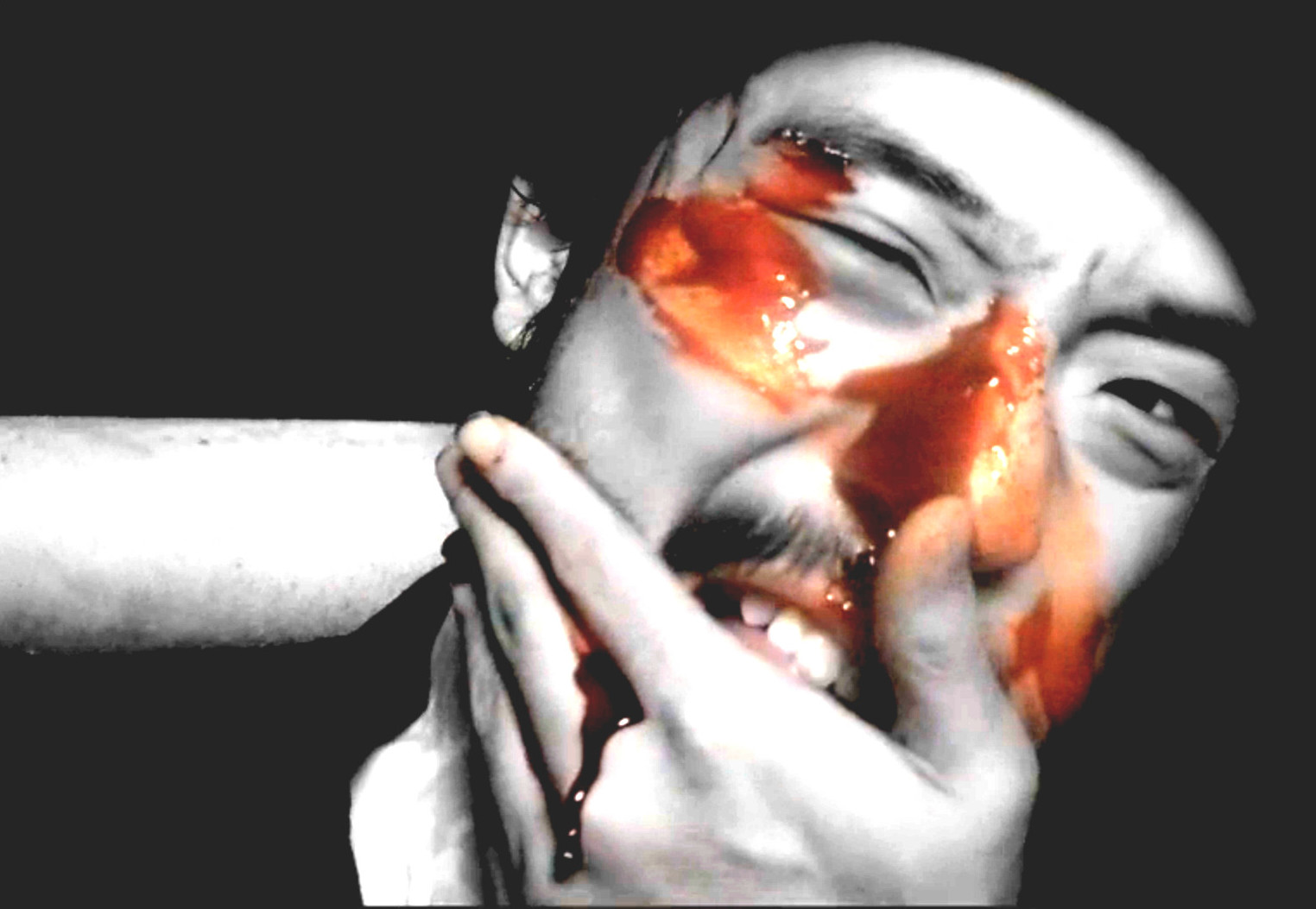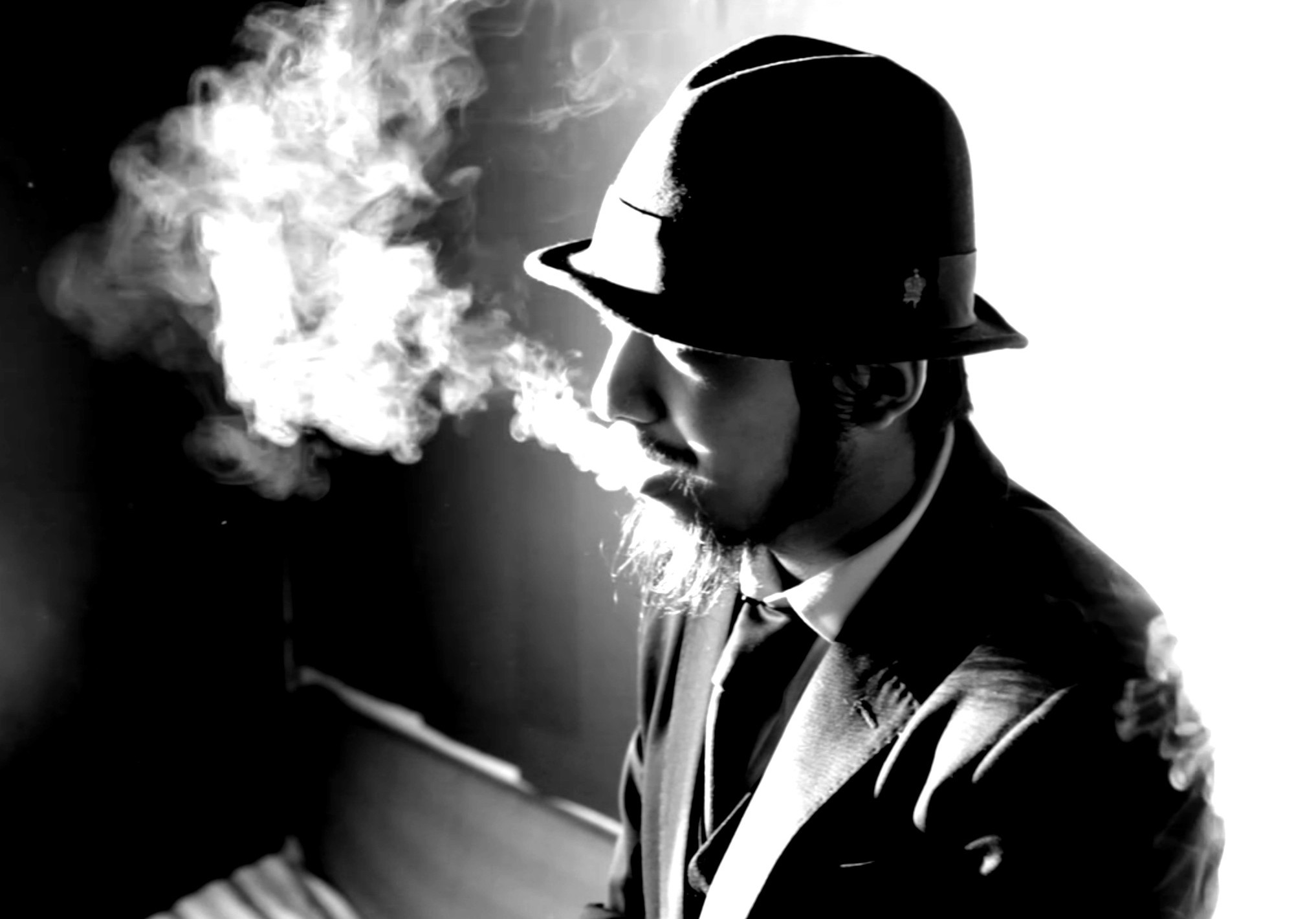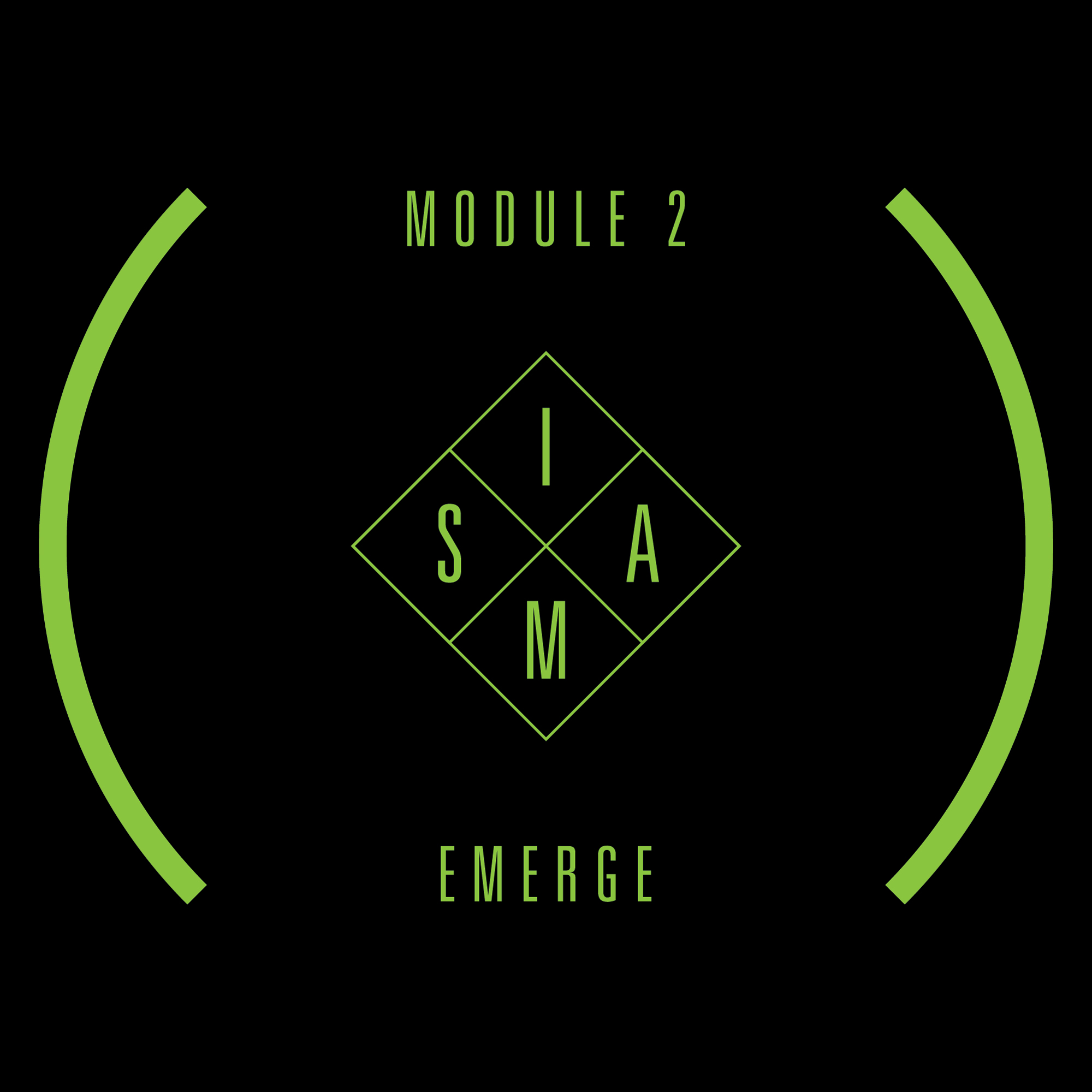采访:洪启乐 Hong Qi Le interview
By Liu Kai, 2010年 11月 12日
[+] 豆瓣页面 douban event page

洪启乐,出生于福建,声音艺术装置艺术家,早期也创作大量噪音作品。四年前他成立了自己的声音实验厂牌脑波交流, 分别以实体CD和网络数字的形式发表过若干海内外声音艺人的专辑,有包括他自己,折磨护士(Torturing Nurse) 以及来自台湾和新加坡等地的声音艺术家。今年八月底,他带着厂牌也一起搬到了北京,开始有了新的音乐创作计划,目前正与前卫萨克斯手/话剧演员李增辉和gogo J等北京乐手一起合作新的乐队。在来到北京不久,他还个人参与了话剧导演王小新和康赫的音乐设计部分的创作。
下周二他将参加每周二在D22举行的燥眠夜演出活动,随同表演的还有声音实验乐手冯昊,和笔记本声音爱好者Vavabond。
Fujian sound and visual artist Hong Qi Le recently relocated to Beijing. His work explores the relationship between sound and art: minimal electronic compositions engender complex visuals generated by Processing and other programing languages. He also runs Brainwave Communication, an experimental label on which he has released his own work as well as Shanghai’s Torturing Nurse and artists from Taiwan and Singapore.
After just over two months living in Beijing, Hong Qi Le has collaborated with local saxophonist Li Zenghui and new media collective Gogo J. He also worked as the sound designer for theatrical dramas directed by Wang Xiaoxin and Kang He. Read on to learn more about Hong’s long-term plans in Beijing and stream some videos of his past works (Vimeo – need VPN) to get a taste of what you can expect on November 16th’s Zoomin’ Night, when he’ll be performing along with Feng Hao and Vavabond.
pangbianr: 你搬到北京多久?没来北京之前是怎么样的生活?
Hong Qi Le: 差不多有三个月了,我是八月底搬过来的。之前在福建也一样,比较宅一点,然后偶尔会举办一些演出活动。来北京就是想过来玩一趟,没有太多计划,也没有想呆多长时间,现在呆着呆着就先定下来。
pangbianr: How long have you been in Beijing? What were you doing before you came here?
Hong Qi Le: I’ve been here almost 3 months I think. I just moved here at the end of August. Before, when I was in Fujian, life was pretty similar — casual, kind of lazy, occasionally organizing shows. I feel like at the beginning, moving here for me was like a vacation to relax, a long holiday maybe. I didn’t really have much of a plan, and never thought much about the time, but just accepted the changes as they came. But now, I just want to stay here, that’s all.
pbr: 脑波交流厂牌现在也和你一起搬过来了?之前都有与哪些艺人合作过,在北京这边有什么新的打算?
HQL: 脑波交流是06年成立的,反正我现在人在哪厂牌就在哪(哈哈)。之前发表过挺多的,也有十几张吧,在脑波交流发表的第一张是一张合辑,有来自全世界各地的艺人,像香港,台湾,波兰和德国等。也很轻松简单地跟他们合作,一般就是事先发封邮件或者打个电话联络他们,有部分艺人也自己推荐直接跟我联系。我自己和折磨护士一起有合作过一张3寸的CD作品,去年出版了一个来自云南的极简电子组合 “和合二仙” 的作品,他们作品挺不错的,比较极简化的声音创作。最近我在想先发表一张自己个人的作品,但也一直没有想好以什么样的介质来做发行,现在做实体唱片的话需要考虑的问题会比较多一些。
pbr: Your label, Brainwave Communication, moved here with you. Can you tell us something about it and the artists you work with? What are your plans for the label in Beijing?
HQL: I started the label in 2006. It’s a pretty simple story — the underground label, the label and me, we ‘ve been bound together from the start. The lable is based in the place where I live [laughs]…I released a lot before, maybe ten or more records. The first one was a compilation, including several artists from around the world — Hong Kong, Taiwan, Poland, Germany and others. We just worked in a casual way, you know. We’d contact each other by email and phone. Some of them initially recommended themselves to me. But speaking of records, I’d personally pick two to recommend: a 3-inch disk I released for Torturing Nurse, and another one from a minimal electronic music group called He He Er Xian. They’re both quite good. They try to be creative in a minimal way. Recently, I’ve been wanting to release an album of my own. But I haven’t figured out what the best approach will be, mostly because it’s become more and more complicated to release records now.
pbr: 那你在北京有了新的乐队创作计划,可以介绍下吗?
HQL: 还只是一个计划吧,刚刚开始,目前我和gogo j的乐队l’os 还有李增辉一起做了一个新的组合,小圈负责主唱,gogo j是提琴。我和李增辉也可能有些单独的合作计划,现在也只是停留在口头上。今年来北京是和l’os有在北京两个好朋友演过一场,他们的东西跟我也不太一样,他们比较偏于黑暗氛围化一些,当时表演时还是有点不太习惯,但最近排练慢慢就有新的东西,感觉也挺不错,之前我是作为一位鼓手与他们一起表演,现在我选择直接用笔记本演奏一些节奏和声音相关的创作。毕竟我听他们的作品也比较少,所以对他们所表达的东西还是有点不能太理解,现在我就能慢慢的融入,感觉挺好的,包括最近排练什么的。
pbr: What new projects have you been working on in Beijing?
HQL: Well, things seem to be going according to schedule. Gogo J’s band called l’os, Li Zenghui and I will start a new project, Xiao Quan [of L’os] is the lead vocalist and Gogo J will play violin. Li Zenghui and I may also have some other projects, but we’ve only spoken briefly about them. This time in Beijing, I played once with L’os at 2 Kolegas. I think we are quite different, you know, and L’os is pretty dark, a kind of dark ambient sound. At the beginning, I was not really accustomed to playing with them, but everything is getting better now. I used to be a drummer for them at that time, but now I choose to work with my laptop to make rhythms and sounds. I think it’s mostly that I ‘m not really familiar with their works, so I can’t fully extract the feeling from their music, but now I think I can put myself into the situation of their sound when play together. So our musical relationship seems to have progressed a lot.
pbr: 谈谈你前一阵与一些话剧导演合作的配乐的感受。
HQL: 和自己创作是挺不同的,我也才刚开始尝试与话剧导演合作,更多时是需要取决于导演他们自己想要的,他们需要的感觉和我所做出来的声音有时会有些差异的,因为导演用言语所说的那种感觉可能并不是很清晰,很多只是一些除了语言之外的另一种沟通问题。
pbr: In the first few months you’ve been in Beijing, you’ve worked as a sound designer for some theatrical productions. How did that work out?
HQL: I feel that it’s quite different from my own work, and this is my first time I’ve worked with them. Mostly I try to do the what the directors want me to do, and of course, there can be some communication issues. The directors can only attempt to describe their feelings and concepts, so at times it’s not very clear what they have in mind. What I produce may not always match their intentions, but this is something you come across often in artistic work. I think sometimes we just try to find a way that doesn’t require language, a way to more meaningfully communicate with and understand each other. This aspect is really interesting to me.
pbr: 那我们回到你自己的作品现场表演,之前你在北京也有表演过,可以说说你自己的经历吗?
HQL: 首先说说门票这事吧(哈哈),在北京可能蹭票的人比较多,基本上就是能蹭就蹭(呵呵),在上海会有所不一样,很多人都乐意自觉买票,可能是在北京圈子的消费习惯问题,这种经历对我来说挺深的。以前在上海也举办过一些活动演出,一般也都是在酒吧,卖出去七十多张门票,还是挺理想的。当然在北京的实验声音类的演出活动肯定是比较活跃的,这是毋庸置疑的。其实现在不太想在酒吧做一些活动,总是显得有点不伦不类的感觉,今后更想趋向于一些艺术空间做一些装置之类的创作。
pbr: You’ve played in Beijing several times before. What has your experience been performing live music here?
HQL: Well, I ‘d like to say something about the tickets [laughs].You know in Beijing, lots of people don’t pay when they come to see a show. Actually, they’ll use any means possible get out of paying. But in Shanghai, it’s a bit different. More people are willing to buy tickets. So thinking about that, we can see a noticeable difference in the consumption habits here in Beijing. I’ve experienced this phenomenon quite a lot in Beijing. I used to book a number of shows in Shanghai, mostly at bars. Once the venue sold more than 70 tickets, and that happens from time to time. Well, here in Beijing, there’s no doubt that the experimental music scene is more active. And besides, I don’t really care about booking and performing experimental sound shows at bars. It can be weird at times. I’d mostly like to perform in art spaces in the future.
pbr: 在过往的现场表演中,有没有令你特别印象深刻的?
HQL: 挺多的,每场演出感受都会不一样,所有演出经历和令人打动的感觉都会不同。普遍都挺好,但有时也有点糟,也很正常,比如,乐器的即兴演奏,不可能每一段都会那么出彩,有时就会有完全不同的感受。
pbr: Can you tell us about your impressions of shows you’ve seen in Beijing?
HQL: It happens a lot, you know, and every time is different. The feeling changes all the time. In general, most shows are great. Of course sometimes, the acts really suck. You know, this is pretty normal. Though with instrumental improvisation, the acts are usually really good.
pbr: 那么你对未来声音的探索发展会有什么样的展望?
HQL: 我个人可能更想偏于声音装置方面的创作,会比较互动一些的作品,更可能偏于艺术互动化一些,其实本身很多人觉得我是做声音艺术或者音乐,随着自己经历一些事情和看过系列的演出活动总会有不同的启发,这其实也都不能概况本身我所在做的事情,我也不知道自己做的是什么。
pbr: How do you feel about the future of sound art? Where is it going?
HQL: Well, speaking personally, I hope to develop my work in sound installation. I’m interested in some interactive approaches, especially interactions involving art language. Actually, a lot of people think that I’m a sound artist or a musician, but I think I really don’t want to define myself clearly under one title. I discover a lot of things during my experience. But if you want me to give you a definitive answer, I really don’t know what I’m doing right now, it doesn’t seem like a job per se.
pbr: 你愿意把声音称为是一种艺术形式或者只是一种特殊的信息媒介?
HQL: 说信息的话,身边很多的声音都是信息,包括我们现在这种发声语言,但很多这种信息沟通是有问题的。然后从艺术角度定义来说就比较广,也说不好,我比较个人化一些,不想太多其他的,唯一想的就是继续做自己喜欢做的事情。
pbr: Are you willing to say that sound is an art form, or just that it’s another type of informational medium?
HQL: First, speaking to the information aspect, most of the sound around us forms a kind of information. This includes our language, the voice from which I’m speaking right now. But sometimes, with communication like this, the languages, the voice etc….confront a lot of problems. From an artistic point of view, it becomes broader I think. It can’t always be described very clearly. For me, it’s a very personal thing. I really don’t care about it, the only thing I really care about is doing what I want to do. That’s enough for me.










顶